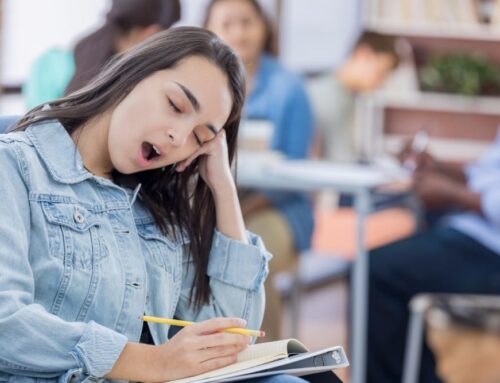As children enter the formal school setting, it is often assumed that as students they will learn to become accustomed to sitting nicely at their desks and completing all necessary classwork. While some children evidence no difficulty staying seated throughout the course of the academic day, for others it can be a quite difficult task, which if challenging enough, can result in frequent negative feedback from their peers and teachers. Fortunately, educators and school personnel have become increasingly aware of the diverse needs and behavioral profiles of students. Consequently, schools have begun to implement alternative strategies and tools to assist children who have difficulty working in a standard child-sized chair. One of these adaptive tools is a standing desk. Although originally developed to decrease sedentary behavior in the classroom, standing desks have been posited to offer additional benefits, including improved cognitive functioning.
In a recent article in the International Journal of Environmental Research and Public Health, Ranjana Mehta and colleagues published findings from a pilot study examining the neurocognitive benefits of standing desks. Among 27 high school freshman students, Mehta and colleagues found that continued use of standing desks was associated with improved executive functioning and working memory ability over the course of two semesters. These preliminary findings provide encouraging evidence about the diverse benefits of adaptive, dynamic tools in the classroom.
In an effort to set children and adolescents up for continued success, it is important to make school as positive experience as possible. If your child’s behavioral challenges in the classroom are getting in the way of his/her ability to enjoy school and/or are negatively impacting his/her self-esteem, CONTACT US about scheduling a comprehensive psychoeducational evaluation. We will work with you and your child to identify an individualized profile of strengths and weaknesses and set of recommendations, which together can result in improved academic and personal success.





